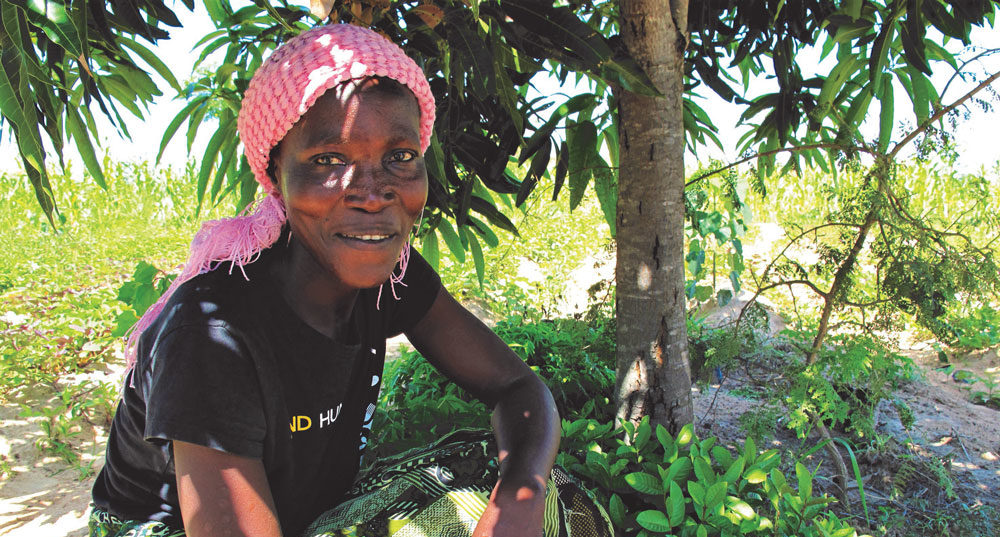Food security and livelihoods in Africa face multiple challenges. Growing population, the decline in productive land and the impacts of climate change all add to pressure. Bearing all that in mind, what kind of agriculture can deliver sustainable food security?
The new open access book Multifunctional land uses in Africa: sustainable food security solutions by Elisabeth Simelton (ICRAF), Madelene Ostwald (Gothenburg Centre for Sustainable Development, GMV), Moses Osiru (ICIPE) and 6 young researchers from Africa, gathers contemporary case studies of land management practices and innovation in Africa, exploring how multifunctional land use can help reduce food insecurity and poverty.
“This book will be of great interest to those who study African development, agriculture, food security, land use and environmental management, as well as to policymakers and practitioners working in these areas,” says Madelene, researcher at Chalmers University of Technology and one of the authors.
A unique perspective on multifunctional land use in Africa
Presenting a selection of the existing examples, the book demonstrates how integrated land use and natural resources, labour, and other inputs can have positive effects on food security at a household, community and national levels. Drawing on case studies from Kenya, Ethiopia, Nigeria and Burkina Faso, contributed by young African researchers, the book illustrates how non-conventional uses can generate profit while promoting social and environmental sustainability.
It examines different benefits of aquaculture, integrated water management, peri-urban farming systems, climate-smart agriculture, and parkland agroforestry. The idea of putting together a book about successful cases of multifunctional land uses originated when the young African researchers met in Nairobi during an AgriFoSe2030 training course on ‘Translating Science into policy and practice’. Stemming from different scientific backgrounds, they realized their work is united by the topic of food security and multifunctional land use and brings research material that demonstrates actual successes in the field. To make the best use of their findings, they decided to publish the cases as a book, with hopes to steer policy and implementation.
“This book comprises science-based work by African researchers in their contexts and translates it into a format that can be digested by many. We hope that the cases can inspire and help shape future policies and practice for multifunctional land uses and food security,” says Madelene.
International acknowledgment
Cheikh Mbow, Adjunct Associate Professor at the Forestry Department of Michigan State University and a lead author for the Agriculture, Forestry and Other Land Use (AFOLU) of the IPCC’s Fifth Assessment Report, has endorsed the book. He says that it addresses what most national policies don’t mention in their sectoral approaches:
“If you are looking to find out how production at the local scale is influenced by various geographies, social behavior, marketed drives, and cultural beliefs, get this book. It will guide you in content and methods.”
Watch this video with messages from the editor Madelene Ostwald and the authors Julius B. Adewopo (IITA) and Geraldine K. Matolla (University of Eldoret) explaining how they came up with the idea to produce the book and why successful cases matter.
Watch the video with the authors from the write shop in Gothenburg in 2018.
The book is an outcome from Theme 2 of the Agriculture for Food Security – AgriFoSe2030 – program. Theme 2 on Multifunctional landscapes for increased food security is interdisciplinary and covers cross-cutting issues such as sustainable intensification of agriculture, the central role of women and young people in agriculture, and access to markets and value chains.
